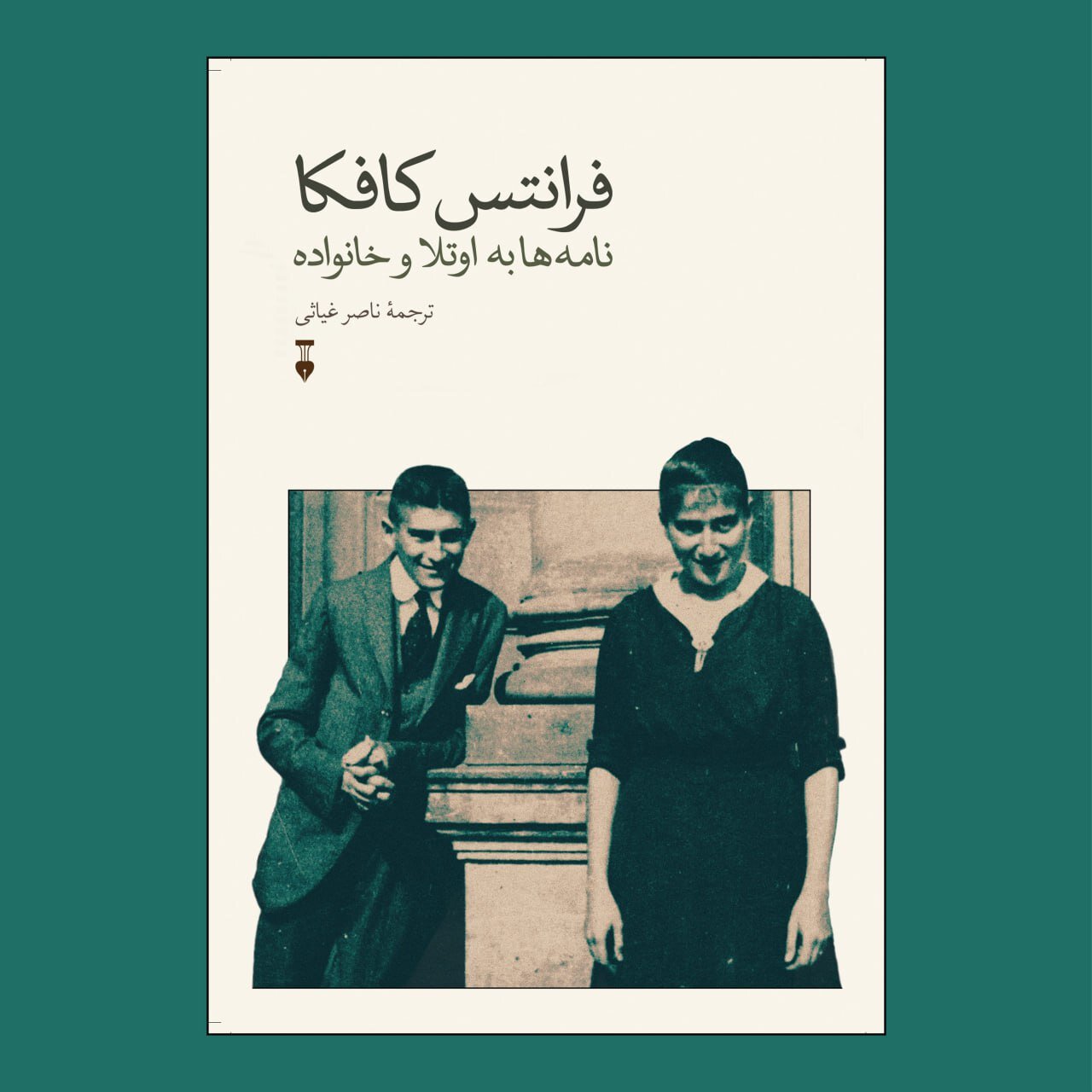Kafka's letters to his sister, parents published in Persian

TEHRAN – The Persian translation of the book “Letters to Ottla and the Family,” which is a collection of Franz Kafka's letters to his sister Ottla as well as some letters to his parents Julie and Hermann Kafka, has been released in the Iranian bookstores.
Nasser Ghiasi has translated the book from the original German text and Now Publication has brought it out in 241 pages, ILNA reported.
Written by the author of “The Metamorphosis” and “The Trial,” these letters offer a unique insight into the workings of the Kafka family, their relationship with the Prague Jewish community, and Kafka's own feelings about his parents and siblings.
A gracious but shy woman, and a silent rebel against the bourgeois society in which she lived, Ottla Kafka was the sibling to whom Kafka felt closest. He had a special affection for her simplicity, her integrity, her ability to listen, and her pride in his work.
Ottla was deported to Theresienstadt during World War II and volunteered to accompany a transport of children to Auschwitz in 1943. She did not survive the war, but her husband and daughters did, and preserved her brother's letters to her. They were published in the original German in 1974 and in English in 1982.
Franz Kafka (1883-1924) was a German-language Jewish Czech writer and novelist born in Prague, in the Austro-Hungarian Empire.
Widely regarded as a major figure of 20th-century literature, his work fuses elements of realism and the fantastique, and typically features isolated protagonists facing bizarre or surreal predicaments and incomprehensible socio-bureaucratic powers. The term Kafkaesque has entered the lexicon to describe situations like those depicted in his writings.
The writing of Kafka attracted little attention before his death. During his lifetime, he published only a few short stories and never finished any of his novels except the very short “The Metamorphosis”.
At the time of his death, Kafka's works were probably known only to a small circle of Czech and German writers. Kafka left his work, both published and unpublished, to his friend and literary executor Max Brod with explicit instructions that it should be destroyed on Kafka's death.
However, Brod ignored his request and published the novels and collected works between 1925 and 1935. Brod defended his action by claiming that he had told Kafka, “I shall not carry out your wishes,” and that “Franz should have appointed another executor if he had been absolutely determined that his instructions should stand”.
Though the novels and short stories that Kafka wrote are typically invoked in his précis, he is also celebrated for his brief fables and aphorisms. Like his longer fiction, these sketches may be brutal in some aspects, but their dreadfulness is frequently funny.
Kafka's impact is evident in the frequent reception of his writing as a form of prophetic or premonitory vision, anticipating the character of a totalitarian future in the nightmarish logic of his presentation of the lived-present. These perceptions appear in the way that he renders the world inhabited by his characters and in his commentaries written in diaries, letters, and aphorisms.
Kafka's work has influenced numerous artists, composers, film-makers, historians, religious scholars, cultural theorists, and philosophers.
SS/
Leave a Comment